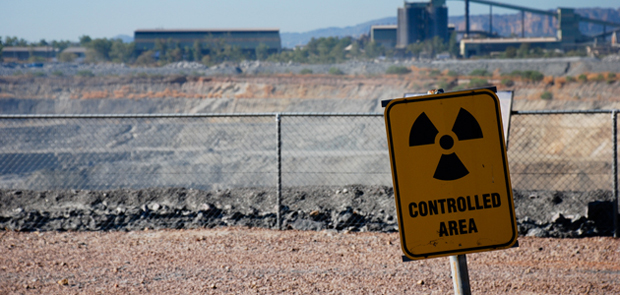
Uranium mining in the Kakadu National Park region in the Northern Territory. Mining is big business in Australia and a commitment to transparency in this sector is needed.
The Australian government took the reins of the G20 on 1 December. In its vision it acknowledges that corruption is bad for business, but Australian business doesn’t seem to think the same, having dropped it from its top priorities for 2014. We think this is a mistake.
“Corruption is a severe impediment to sustainable economic growth and poverty reduction and can threaten financial stability and the economy as a whole.”
– G20 St Petersburg Leaders Declaration, September 2013
The G20 is well aware that corruption plays a crucial role in hampering economic growth. The group commissioned the Organisation for Economic Cooperation and Development (OECD) to draft a paper on exactly this issue earlier this year and emphasises the point in the latest leaders’ declaration.
Business is not blind to the issue. Over the last couple of years, businesses from around the world have formally worked together via the Business 20 (B20) on tangible commitments to tackle corruption. Its work and its engagement with civil society organisations in the Civil 20 and with the G20 Anti-Corruption Working Group were also welcomed by G20 leaders.
Australian businesses drop focus on corruption
In that light, the leadership group of Australian businesses in the B20 should reconsider dropping anti-corruption as a key priority.
For Australian business to drop its focus on corruption is particularly concerning in light of data that emerged recently. Australia also dropped four points this year in the 2013 Corruption Perceptions Index. This is the largest decline among all G20 countries. In addition, 47 per cent of respondents in Australia said that business is corrupt or extremely corrupt, according to Transparency International’s Global Corruption Barometer study.
Why Australia must not lose the anti-corruption angle
Investment and infrastructure is named as a top priority for both the G20 and the B20. It’s a key area in Australia’s drive towards boosting private sector growth. But Transparency International’s research shows infrastructure projects are particularly prone to corruption, whether it is a dam or a road or a new hospital or school.
Here are three reasons it can’t ignore the corruption angle:
- Corruption in infrastructure costs a lot
Transparency International estimates that corruption costs 10 to 25 per cent of a contract’s value. The OECD estimates that at least US$50 trillion needs to be invested in infrastructure by 2030. Without good anti-corruption safeguards, a huge amount of money stands to be siphoned off. - Investment must be efficient to generate maximum benefits
An environment of transparency and accountability is crucial to attracting investment. Availability of project information levels the playing field for private investors. It also means costs, quality of construction and waste – including any corruption – can be held up for wider scrutiny. - Corruption in infrastructure hits economies of all sizes
Corruption in infrastructure is not only a developing country issue. In 2008, 103 construction companies in the UK were fined a total of £129 million (US$211 million) when found guilty of rigging bids during the tender process. Dutch taxpayers allegedly forked out US$500 million each year over 10 years as a result of road construction cartels deciding who would win contracts. In many developing countries this impact is exacerbated by the development of projects with little utility or value.
So what should the Australia presidency do?
- Ensure the B20 tackle corruption as a core business issue
The Australian presidency needs to ensure that the B20 mainstreams anti-corruption compliance throughout its work-streams. An anti-corruption task force in each work group could ensure that proposals put forward integrate and promote anti-corruption compliance methods. - Support and promote more transparent corporate reporting and become EITI compliant
In the EU and the US, legislation requires natural resource companies to publish payments they make to governments on a country-by-country basis. Australia should adopt similar standards for their extractives industry and encourage other G20 governments to do the same. Country-by-country reporting mitigates political, legal and reputational risks and increases longer-term stability. Consultations should also be conducted with other sectors – including construction and infrastructure – with a view to future roll-out of similar legislation beyond the natural resource sector. Mandatory reporting is complementary to the voluntary Extractive Industries Transparency Initiative (EITI) and strengthens the initiative by codifying its best practices. - Implement and promote the Construction Sector Transparency Initiative (CoST)
The Construction Sector Transparency Initiative was endorsed by the G20 in Cannes in 2011. It has proven effective in improving infrastructure outcomes and tackling corruption. The Australian government should push for the G20 and beyond to support worldwide implementation.
Prime Minister Tony Abbott has been clear from the start – Australia will not host a “talkfest”; the agenda next year will be focused and practical. We welcome focus. But tackling corruption can only help reach other priorities, such as effectiveness, efficiency and accountability in the global financial system.
Carousel image: Creative commons, Flickr / Alberto Otero García















 Connect with us on Facebook
Connect with us on Facebook Follow us on Twitter
Follow us on Twitter